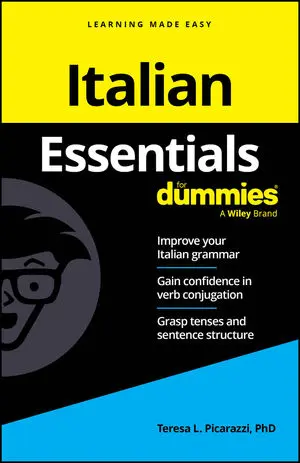Whether you're learning Mandarin, Farsi, German, or Italian, idioms enrich communication — but can't be translated literally. In Italian, the most common idioms use the following verbs: fare (to do), avere (to have), essere (to be), and andare (to go).
Idioms using fare (to do)
Here's a list of the most common idiomatic expressions with fare (to do):
fare gli auguri (to give one's wishes)
fare il bagno/la doccia (to take a bath/shower)
fare bello/brutto/caldo/freddo/fresco (to have good/bad/warm/cold/cool weather)
fare il biglietto (to get a ticket)
fare buon viaggio (to have a good trip)
fare colazione (to have breakfast/lunch)
fare i compiti (to do homework)
fare una conferenza (to give a lecture)
fare la conoscenza di (to meet; to make the acquaintance of)
fare il conto (to add up the total)
fare due, tre, . . . chilometri (to cover 2, 3, . . . kilometers)
fare un favore (to do a favor)
fare un giro (to take a tour)
fare male (to hurt; to ache)
fare una partita di calcio (to play soccer)
fare una passeggiata (to take a walk)
fare la pasta (to cook pasta)
fai pure! (go ahead!)
fare un regalo (give a present)
fare una sorpresa (to surprise)
fare la spesa (to go grocery shopping)
fare le spese (to go shopping)
fare lo spiritoso (to joke; to clown)
fare tardi (to be late)
fare una telefonata (to make a call)
fare le valige (to pack)
fare vedere (to show)
fare un viaggio (to take a trip)
fare una visita (to pay a visit)
Idioms using avere (to have)
Notice that most of the idiomatic expressions with avere are translated with the verb to be in English.
aver caldo (to be warm)
avere . . . anni (to be . . . years old)
avere la corda al collo (to have no way out)
aver fame (to be hungry)
avere fegato (to be brave)
aver freddo (to be cold)
aver fretta (to be in a hurry)
avere grilli per la testa (to have fancy and unrealistic ambitions)
avere la luna storta (to be in a bad mood)
avere una memoria di ferro (to have a good memory)
avere molto caldo (to be hot)
aver paura (to be afraid of)
aver ragione (to be right)
aver sete (to be thirsty)
aver sonno (to be sleepy)
aver torto (to be wrong)
aver vergogna (to be ashamed of)
Idioms using essere (to be) and andare (to go)
Here's a list of the most common idiomatic expressions with essere (to be) and andare (to go).
essere a cavallo (to find a good solution to an issue)
essere al settimo cielo (to be very happy)
essere come il diavolo e l'acqua santa (to be extremely different)
essere nelle canne (to be broke; to be in difficulty)
essere un carciofo (to be credulous/awkward)
andare all'aria (to disrupt the plans; to be unsuccessful)
andare liscio (to go smoothly)
andare via (to leave; to go away)
andare a trovare (to pay a visit to someone)






